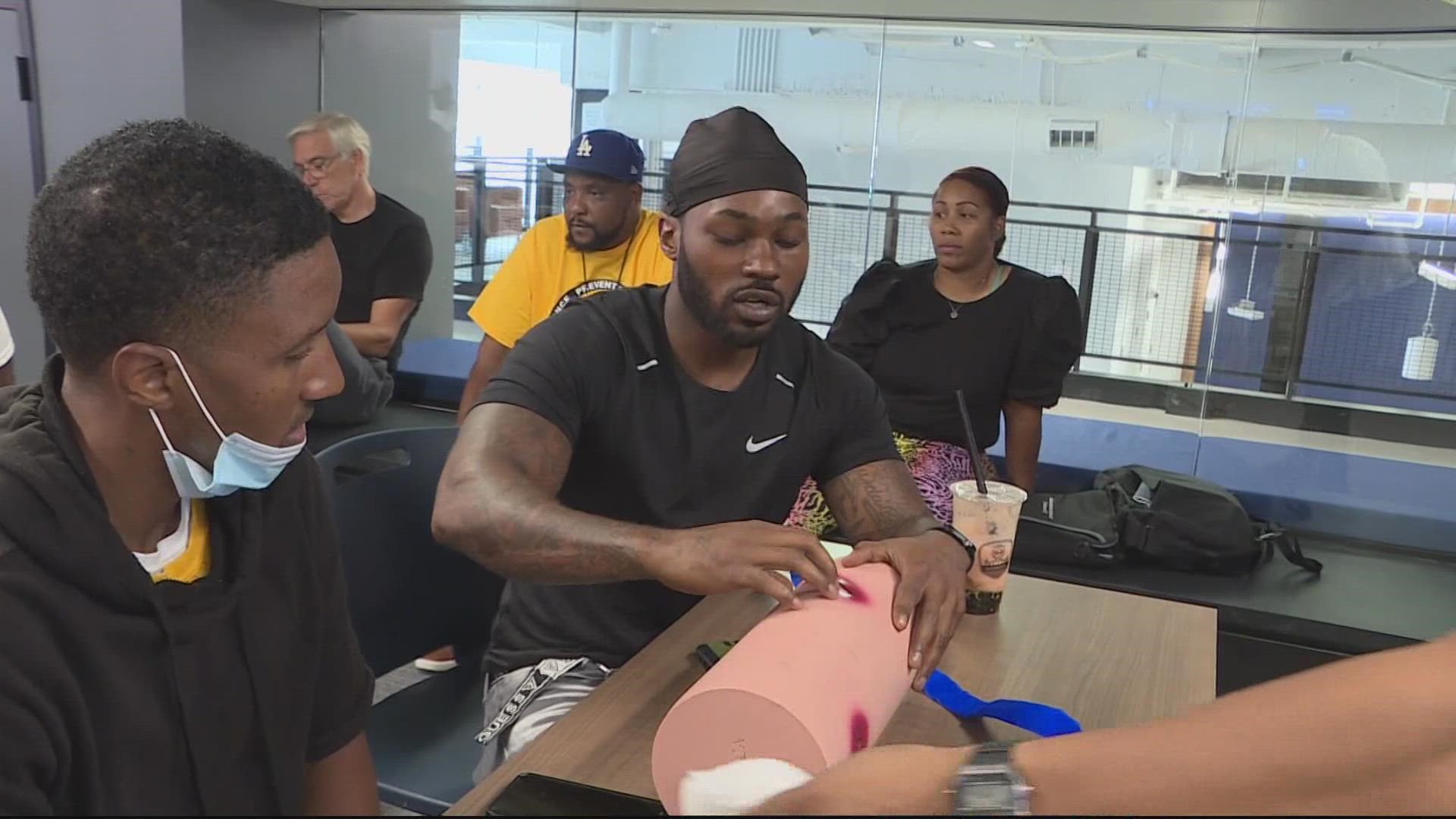WASHINGTON — As shootings continue to rise in DC, trauma doctors are heading to the streets to teach violence interrupters how to stop the bleed.
“You just have to do whatever you have to do to stop the bleed," Dr. James Wallace said.
He's part of the MedStar Washington Hospital Center that is partnering with Peace for DC to run these trainings.
They're starting with violence interrupters, because they work with communities experiencing gun violence every day...like Dwayne Falwell, program director at Training Grounds.
“I've definitely been on the scenes of shootings and before first responders arrived, and I saw people bleeding out," Falwell said. "So it's good to have the course so we can maybe save a life.”
And stopping the bleed really does save lives: Dr. Wallace said a person can bleed out in five minutes.
“Whatever you can do to slow the blood loss is going to be a benefit to that person, and is going to help that person arrive alive to the hospital so the surgeons there can do something for them," Dr. Wallace said.
He's a U.S. Navy surgeon who has done multiple tours to Afghanistan and said that the scale of violence in DC surpasses what he saw overseas.
"There's not many days over at hospital center that we don't see a shooting victim," he said.
They teach the ABCs of stopping the bleed.
A is for alert, which means calling 911.
B is for bleeding, which means recognizing the life threatening hemorrhage.
C is for compression, which includes pressure, packing, and tourniquet.
Dr. Wallace said you have to pack the gauze right into the wound until you can't pack anymore to really stop the bleed. He said there also has to be constant pressure.
“Pushing a t-shirt or gauze into an open wound is going to hurt. Placing a tourniquet correctly is going to hurt," he said. "But these are the steps that have to happen in order to save somebody's life.”
And that's what the trainees hope to do.
“The more we learn, the more educated we are, the more effective we can be in the street," Falwell said.

